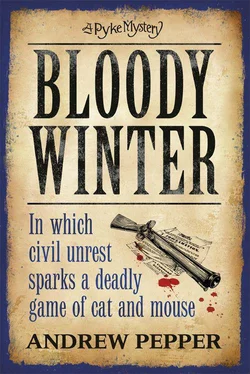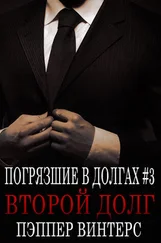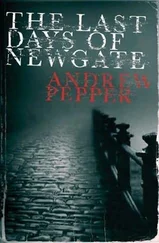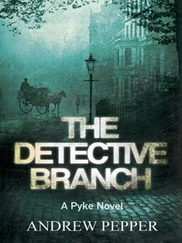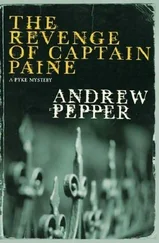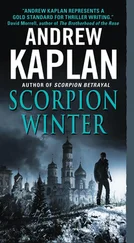Andrew Pepper - Bloody Winter
Здесь есть возможность читать онлайн «Andrew Pepper - Bloody Winter» весь текст электронной книги совершенно бесплатно (целиком полную версию без сокращений). В некоторых случаях можно слушать аудио, скачать через торрент в формате fb2 и присутствует краткое содержание. Жанр: Исторический детектив, на английском языке. Описание произведения, (предисловие) а так же отзывы посетителей доступны на портале библиотеки ЛибКат.
- Название:Bloody Winter
- Автор:
- Жанр:
- Год:неизвестен
- ISBN:нет данных
- Рейтинг книги:4 / 5. Голосов: 1
-
Избранное:Добавить в избранное
- Отзывы:
-
Ваша оценка:
- 80
- 1
- 2
- 3
- 4
- 5
Bloody Winter: краткое содержание, описание и аннотация
Предлагаем к чтению аннотацию, описание, краткое содержание или предисловие (зависит от того, что написал сам автор книги «Bloody Winter»). Если вы не нашли необходимую информацию о книге — напишите в комментариях, мы постараемся отыскать её.
Bloody Winter — читать онлайн бесплатно полную книгу (весь текст) целиком
Ниже представлен текст книги, разбитый по страницам. Система сохранения места последней прочитанной страницы, позволяет с удобством читать онлайн бесплатно книгу «Bloody Winter», без необходимости каждый раз заново искать на чём Вы остановились. Поставьте закладку, и сможете в любой момент перейти на страницу, на которой закончили чтение.
Интервал:
Закладка:
Cornwallis stood up and wandered across to the window. ‘I want you to take the body away. I don’t want to see or hear of it again.’
It was said as though the matter was a trifling one. Knox could have pointed out that such an order was tantamount to interfering in a police investigation but it would have been futile to do so. Cornwallis’s influence was such that there was no gap between his ambition and official policy.
‘You will have heard some things — some unfair things — said about me in Cashel, I expect. That I am a monster; that I do not care about the well-being of the local people.’ He paused and shook his head. ‘Nothing could be farther from the truth. I’m here, am I not, even though my sons have chosen to spend the winter in London. I’m simply trying to attend to the matters of my estate as best I can.’ Cornwallis tapped the heels of his boots against the floor.
An awkward silence ensued. Knox wondered why the old man had felt the need to justify himself.
‘Will that be all, your Lordship?’
‘Asenath. Call me Asenath.’ He wandered across to where Knox was standing. ‘You’re a good boy.’ Stretching out his hand, he tapped Knox gently on the cheek.
Knox shifted his weight from foot to foot and waited to be dismissed.
‘Your mother has been a good and faithful servant to this family.’ Cornwallis waved his hand, as though flicking away a fly. ‘She’s asked to see you. You’ll find her in the kitchens.’
His mother took him in her arms, even though her hands were covered in stuffing. Knox was known by most of the women who worked there and they shouted their greetings. Pulling back from her hug, Knox surveyed his mother with affection. She was tall and elegant. Her thin, straw-coloured hair was tied up under a lace bonnet and her skin was blotchy from the heat of the kitchen. He still thought her a fine-looking woman, for her age, but each time he saw her, he worried that she seemed older. This time she also seemed thinner, but he reassured himself with the thought that there wasn’t likely to be a shortage of food in Cornwallis’s kitchen.
‘How are you, son?’ She wiped her hands on her apron and touched him on the cheek. ‘And James?’
James was his son, her grandson. He noticed she hadn’t asked after his wife. ‘They’re fine. Martha’s fine, too.’
‘It’s the wee’un I worry about.’
Knox looked at the goose lying in front of her and the vegetables waiting to be cut. ‘It’s sometimes hard to believe people are dying of starvation.’
‘Quiet, boy. You don’t want his Lordship to hear you talkin’ like that, do you?’
‘You think what he’s done, what he’s doing, is right? Turning families out of their homes?’
His mother looked at him, half-amused. This was familiar ground and usually they chose to respect each other’s different opinions of the aristocrat. ‘Is it his fault the crops failed again this year?’
This time, Knox felt, there was a prickliness to her tone and he wondered whether he should speak his mind or not.
His mother sighed. ‘I’ve served him for almost forty years and I swear, he’s not a bad man. And he’s been good to us, all of us, your brothers, your father, you too.’
Knox felt a pang of guilt. He hadn’t seen his youngest brother, Peter, for a number of months and it struck him that with the spread of disease brought on by the famine he was more at risk than most. Peter had always been a sickly child but a bout of the pox when he was eight had nearly finished him off. Six or seven years on, his speech and mental faculties were still those of a young boy. As a result Peter had never been able to work and the family did what they could to protect him from the hardships of the world. Even their father did his bit, but it was Knox’s mother who bore the brunt of the care.
‘How is Peter?’
‘You’d know if you ever paid us a visit.’
Knox didn’t answer. He wondered whether his mother knew the real reason he kept away from the family cabin and why he hadn’t made more of an effort to get to know his two much younger brothers.
As if reading his mind, his mother said, ‘Your father’s back has been playing up.’
Knox shuffled from foot to foot and looked around the kitchen. He didn’t want to talk about his father. ‘I should get going. I have to ride back to Cashel and it’ll be dark in a couple of hours.’
His mother smiled and nodded. ‘You take good care of yourself, son. These are terrible times.’ Her smile evaporated, lines deepening on her forehead.
Knox wondered whether she knew that a man had been killed only a few hundred yards from where they were standing. ‘Can I ask you a question before I go?’
Sarah Knox tucked in a loose strand of hair that had escaped from her bonnet. ‘Of course.’
‘It’s about my position…’
As a rule, policemen weren’t meant to take up positions in their native counties or the counties they were attached to by marriage. But eight years earlier, there had been a shortfall in numbers and a notice had been placed in the local newspaper. Knox had applied and had been accepted. He’d always thought that he had been accepted for the position on his own merit.
‘When I first applied, did his Lordship put in a good word for me with Hastings?’
His mother retreated to the wooden table where the goose was waiting. ‘I honestly don’t know, son. I might’ve mentioned that I didn’t want you to leave home. What mother wouldn’t do that?’
Knox went over to her and gently touched her face. ‘I’m not angry with you. But a few moments ago, you said we all owed his Lordship something and I just wanted to know what you meant.’
His mother sighed. ‘I was referring to the wages he pays me, that’s all.’ Having made sure no one was looking, she picked up a thick cut of cured meat and stuffed it into his pocket. ‘Don’t say a word,’ she whispered. ‘Just take it, for you, Martha and the infant.’
Knox wanted to give it back but one of the other kitchen-servants had just come into the room. If someone saw what his mother had done and reported her, she could lose her job.
He went to kiss her on the cheek and, as he did so, she grabbed his wrist. ‘You’re a good boy, Michael,’ she whispered, ‘always was, and I love you very much, but this time you need to think about the whole family.’
The first potato crop had failed the previous autumn. On that occasion, the local authorities — in consort with the government in London — had made relief provisions and only a few people had perished. But when the crop had failed a second time one year later, the new Whig administration decided to leave the relief efforts to the traders, supposing they would import the necessary food. When the scale of the crisis became apparent, the traders tried to purchase additional maize and corn from Europe and the United States but prices had soared throughout the autumn and the first part of the winter. Now most ordinary people couldn’t afford to eat and there was little that impecunious local boards could do.
Earlier in the year, Knox and other policemen had helped to protect convoys of wheat departing for Waterford and eventually England, where the grain would earn the greatest price. As far as he knew, the grain had reached its final destination, but in light of the current shortages, the decision to export so much food seemed immoral if not downright wicked.
He thought about the food he’d just seen in Cornwallis’s kitchen and trembled at the injustice. Knox liked to think of himself as honest and plain speaking, but given the opportunity to confront the aristocrat, he had said and done nothing. He tried not think about how this reflected on his character.
Читать дальшеИнтервал:
Закладка:
Похожие книги на «Bloody Winter»
Представляем Вашему вниманию похожие книги на «Bloody Winter» списком для выбора. Мы отобрали схожую по названию и смыслу литературу в надежде предоставить читателям больше вариантов отыскать новые, интересные, ещё непрочитанные произведения.
Обсуждение, отзывы о книге «Bloody Winter» и просто собственные мнения читателей. Оставьте ваши комментарии, напишите, что Вы думаете о произведении, его смысле или главных героях. Укажите что конкретно понравилось, а что нет, и почему Вы так считаете.
